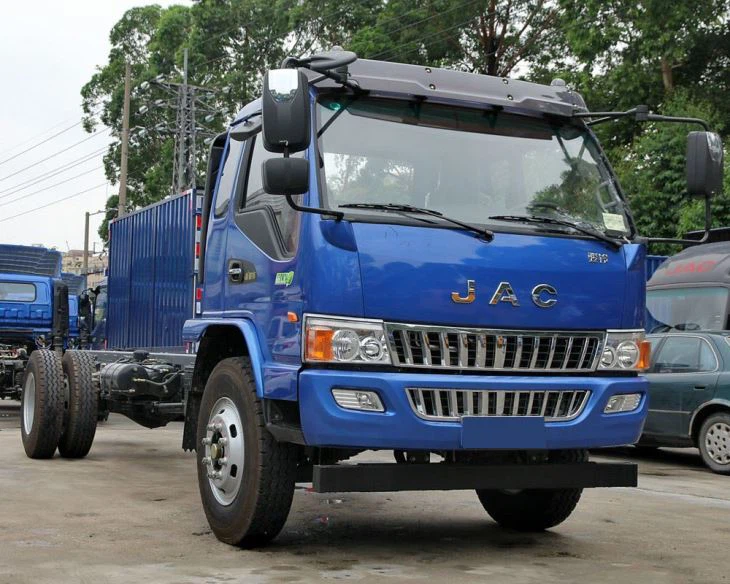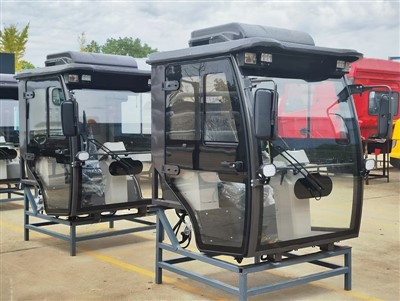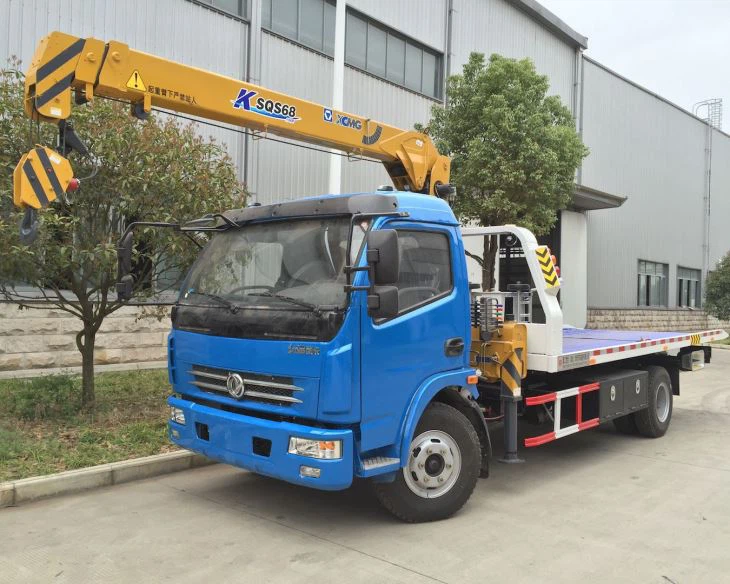Ultimate Guide to Mini Concrete Mixer Trucks: Specifications, Advantages, and Applications

Introduction
In the construction industry, efficient concrete transport is crucial for project success. The mini concrete mixer truck has emerged as a practical solution for small to medium-sized construction projects, providing flexibility and convenience. With its compact size and maneuverability, this type of mixer truck allows contractors to access tight spaces and deliver ready-mix concrete directly at the job site. This article will cover everything you need to know about mini concrete mixer trucks, from specifications and features to applications and benefits, along with practical tips on choosing the right model for your needs.
What is a Mini Concrete Mixer Truck?
A mini concrete mixer truck is a smaller version of a standard concrete mixing truck. Designed for transporting and mixing concrete, these trucks typically feature a rotating drum that combines cement, water, and aggregates. Unlike larger models, mini mixer trucks are designed for agility and can fit into confined spaces, making them ideal for residential and small-scale construction tasks.
Key Features of Mini Concrete Mixer Trucks
- Compact Size: Typically range from 3 to 6 cubic meters in capacity.
- Maneuverability: Designed to navigate narrow roads and small job sites.
- Ease of Operation: Often come with simpler controls, making them accessible for operators with varying levels of experience.
- Efficient Mixing: Equipped with a dedicated mixing drum for consistent concrete quality.
Specifications of Mini Concrete Mixer Trucks
| Specification | Description |
|---|---|
| Capacity | 3 – 6 cubic meters |
| Dimensions | Varies by model but generally shorter length than standard trucks |
| Engine Power | Typically between 100 – 200 HP |
| Weight | Generally weighs under 10,000 kg |
| Mixing Drum Type | Optional drum sizes and shapes based on application |
Types of Mini Concrete Mixer Trucks
1. Standard Mini Mixer Trucks
These trucks are ideal for small job sites and residential projects. Standard mini mixer trucks can carry a smaller amount of concrete but offer high efficiency and ease of use.
2. Self-Loading Mini Mixer Trucks
Self-loading mini mixer trucks come with built-in loaders that allow operators to gather raw materials on-site. This capability makes them particularly useful for projects where external sourcing of materials is challenging.
3. Towable Mini Mixers
Towable mini mixers can be hitched to a vehicle for easy transport. Although they have a smaller capacity, they are perfect for DIY projects or remote locations.
Advantages of Using Mini Concrete Mixer Trucks
1. Cost-Effective
Mini concrete mixer trucks are generally less expensive to purchase and maintain than larger models. They also minimize waste by delivering precise quantities of concrete, which can save costs on materials.
2. Mobility and Access
The compact design allows these trucks to access tight spots that larger trucks cannot reach. This feature speeds up project timelines and enhances operational efficiency.
3. Versatility
They can handle various types of projects, from residential driveways to small commercial constructions, thereby broadening their usability.
4. Reduced Labor Costs
By using mini mixer trucks, fewer personnel may be needed on-site for mixing and transport, further reducing labor costs.
Practical Applications of Mini Concrete Mixer Trucks
1. Residential Projects
Ideal for pouring concrete for patios, driveways, and home foundations. The ability to deliver fresh concrete directly to the site allows homeowners and contractors to ensure quality finishes.
2. Small Commercial Ventures
Used in small retail or office projects, where space is limited, and the volume of concrete needed is less than that in a large construction site.
3. Road Repair and Maintenance
These trucks are effective in urban environments where road maintenance is required, allowing for quick and efficient repairs without disrupting traffic extensively.
4. Agricultural Applications
Farmers use mini concrete mixer trucks for small structures, driveways, and barn foundations, ensuring durability without needing excessive material.

Choosing the Right Mini Concrete Mixer Truck
1. Assess Your Project Needs
Determine the capacity and type based on the specific requirements of your project. Evaluate the size of the area where the truck will operate to choose one that can maneuver effectively.
2. Consider Your Budget
Keep in mind both the purchase price and the operational costs. Factor in maintenance, fuel consumption, and potential contractor expenses.
3. Evaluate Features
Look for features that cater to your operational needs, such as drum capacity, engine power, and additional functionalities like self-loading capability.
4. Check Manufacturer Reputation
Research different brands and manufacturers. Look for customer reviews and reliability standards to ensure you select a trusted model.
Maintenance Tips for Mini Concrete Mixer Trucks
1. Regular Inspections
Conduct routine visual inspections of the mixer truck’s components, including the engine, chassis, and drum. Look for signs of wear that may necessitate repair.
2. Clean Mixers After Use
Proper cleaning after each use prevents concrete residue buildup, which can impair mixing efficiency and quality.
3. Check Fluid Levels
Regularly check engine oil, hydraulic fluid, and coolant levels to ensure optimal operation and engine performance.

4. Schedule Professional Servicing
Establish a schedule for professional servicing and maintenance checks to extend the truck’s life and ensure adherence to safety standards.
Comparison of Top Mini Concrete Mixer Trucks
| Model | Capacity (m³) | Engine Power (HP) | Weight (kg) | Price (Approx.) |
|---|---|---|---|---|
| Model A | 3 | 120 | 8,000 | $25,000 |
| Model B | 4 | 150 | 9,000 | $30,000 |
| Model C | 5 | 200 | 10,000 | $35,000 |
| Model D | 6 | 180 | 10,500 | $40,000 |
FAQs about Mini Concrete Mixer Trucks
1. What is the average cost of a mini concrete mixer truck?

The average cost generally ranges from $25,000 to $40,000, depending on the model and features.
2. How long can concrete be mixed in a mini mixer truck?
Concrete can typically be mixed for about 30-45 minutes, depending on the truck’s specifications and the desired consistency.
3. Can mini concrete mixer trucks transport other materials?
While primarily used for concrete, some mini mixer trucks can transport aggregates and other materials, but it is recommended to check the manufacturer’s guidelines.
4. Are mini concrete mixer trucks fuel-efficient?
Yes, due to their smaller size and engine specifications, mini mixer trucks are generally more fuel-efficient compared to larger trucks.
5. What safety measures should be taken while operating a mini concrete mixer truck?
Operators should follow standard safety protocols including wearing protective gear, checking for obstacles around the vehicle, and ensuring proper load capacity is adhered to.
6. Can I rent a mini concrete mixer truck instead of buying one?
Yes, many construction equipment rental companies offer mini concrete mixer trucks for rent, making it a cost-effective option for short-term projects.
